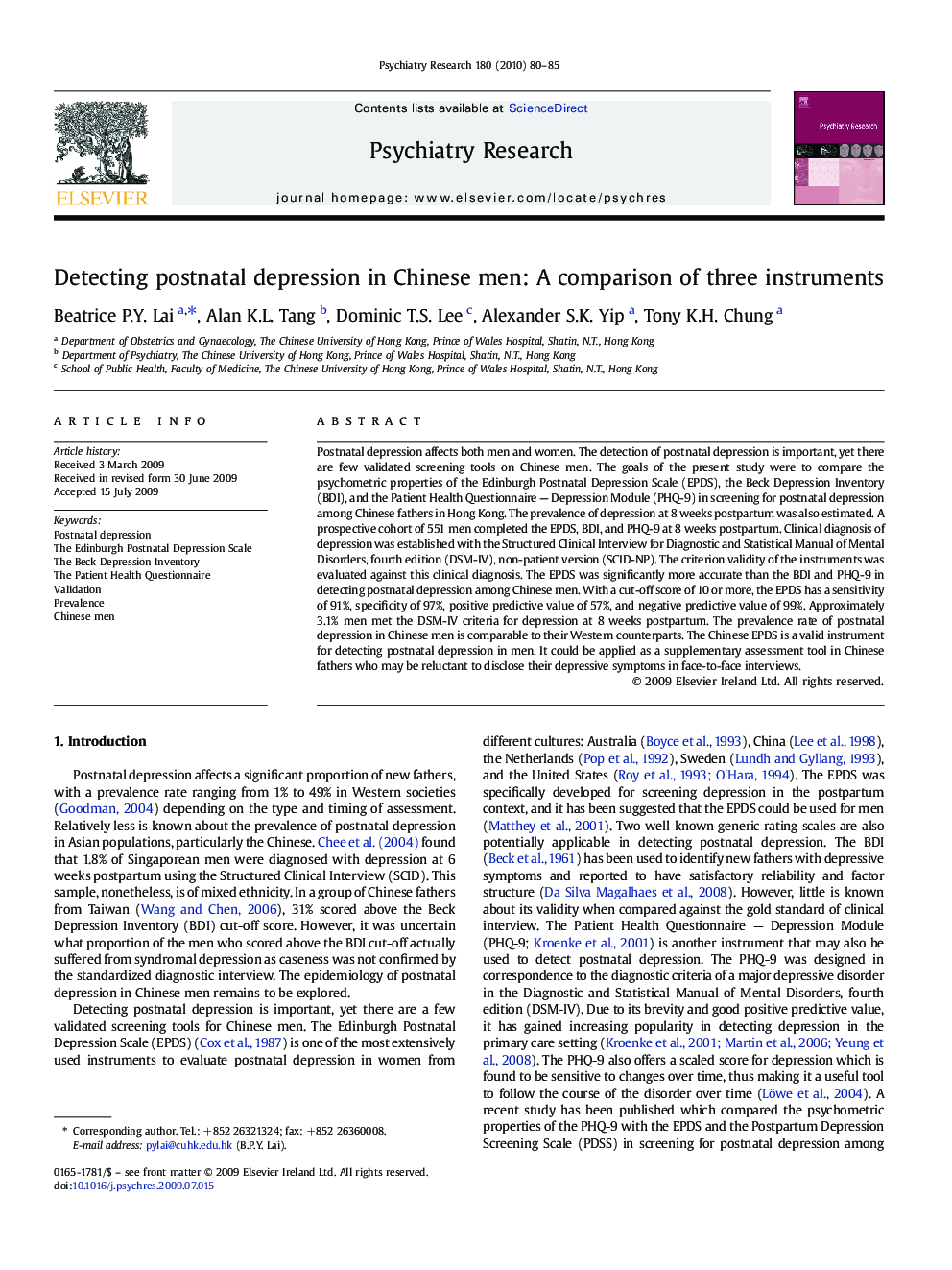| کد مقاله | کد نشریه | سال انتشار | مقاله انگلیسی | نسخه تمام متن |
|---|---|---|---|---|
| 332558 | 545732 | 2010 | 6 صفحه PDF | دانلود رایگان |

Postnatal depression affects both men and women. The detection of postnatal depression is important, yet there are few validated screening tools on Chinese men. The goals of the present study were to compare the psychometric properties of the Edinburgh Postnatal Depression Scale (EPDS), the Beck Depression Inventory (BDI), and the Patient Health Questionnaire — Depression Module (PHQ-9) in screening for postnatal depression among Chinese fathers in Hong Kong. The prevalence of depression at 8 weeks postpartum was also estimated. A prospective cohort of 551 men completed the EPDS, BDI, and PHQ-9 at 8 weeks postpartum. Clinical diagnosis of depression was established with the Structured Clinical Interview for Diagnostic and Statistical Manual of Mental Disorders, fourth edition (DSM-IV), non-patient version (SCID-NP). The criterion validity of the instruments was evaluated against this clinical diagnosis. The EPDS was significantly more accurate than the BDI and PHQ-9 in detecting postnatal depression among Chinese men. With a cut-off score of 10 or more, the EPDS has a sensitivity of 91%, specificity of 97%, positive predictive value of 57%, and negative predictive value of 99%. Approximately 3.1% men met the DSM-IV criteria for depression at 8 weeks postpartum. The prevalence rate of postnatal depression in Chinese men is comparable to their Western counterparts. The Chinese EPDS is a valid instrument for detecting postnatal depression in men. It could be applied as a supplementary assessment tool in Chinese fathers who may be reluctant to disclose their depressive symptoms in face-to-face interviews.
Journal: Psychiatry Research - Volume 180, Issues 2–3, 30 December 2010, Pages 80–85